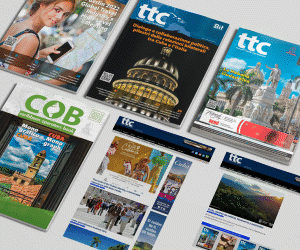Marshelle Haseley/T AND T NEWS, Loop
The COVID-19 pandemic, popularly known as the coronavirus, just like the life-altering event of 911, is likely to change how we live hereafter.
Already, the spread of the virus has resulted in a number of changes to curtail its rate of spreading. Students are now being asked to stay home, some to which work is sent to them by teachers via email. St Andrew High School for Girls in Kingston, Jamaica, for example – sees the use of technology filling in while teachers and students are not able to have classes as usual.
Based on worldwide shock as a result of trends related to how organisations have changed operations, we have created a list reflecting some of these changes. Like in the case of 911, these changes are likely to continue as precautionary measures even after the pandemic is controlled.
Medical consultations: In an effort to control the spread of the virus, people who suspect they may have contracted the virus are asked to call a doctor before going to the doctor’s office or hospital. This approach lessens the potential for spreading, as an infected person may be guided on how to best go about treating the virus and seeking medical assistance. In the case of those who are, in fact, not infected, making contact with a doctor from home, versus heading to a medical facility will limit the possibility of contracting the virus within said facilities or en route. This could introduce a new age of medical consultation via digital media, versus traditional, face-to-face visits to the doctor.
Medical professional training: Reports made by international sources have reflected the need for greater fortification in medical facilities and training in the event of a pandemic.
In a BBC article entitled, Coronavirus: Five ways hospitals will change to tackle the pandemic, it was highlighted how little prepared the world may be in handling pandemics. Major issues discussed included a shortage of ventilators to help those infected by the virus to breathe with ease. It also showed the importance of expanding training of doctors and nurses, as well as broadening facilities such as operating theatres and emergency facilities to factor in such dramatic and rapid rates of patients needing critical medical assistance.
This would reduce pain and suffering for other patients requiring immediate and similarly critical medical attention, such as patients suffering while awaiting postponed operations which would generally be considered urgent.
International travel: Similar to the security procedures governing international travel following 911, it is likely that COVID-19 will add other elements to the process of approving people fit for traveling across borders. We may look forward to seeing temperature checks, infrared tests and other quick media for health-related tests being implemented as standard procedures for traveling – especially in the event of new diseases emerging.
Work, school and digital media: Regional companies such as the Digicel Group have notified employees of the option to work from home, especially taking into consideration the closure of schools. Nestle Jamaica, which implemented a flexible work arrangement, can now put the implementation to a complete test in the wake of the pandemic. Schools at every level have been closed throughout the region in affected states. Teachers and lecturers alike are therefore, where possible, using technology to remain in contact with students, ensuring they can maintain momentum in completing their syllabi as best as possible.
A teacher from St Andrew High School for Girls in St Andrew, Jamaica said she uses the online platform Schoology to give assignments and cover work-related content with her students.
National budget for health emergencies: Governments, going forward, may also amend their approach in budgeting for annual health allocations, taking into consideration the additional costs for supplies, payment to medical professionals and general maintenance of the institutions in the event of larger numbers of people than usual requiring immediate and critical medical care.
International economics, trade and commerce: Countries will not rethink their international trade and commerce agreements regarding the number of countries with which any one country would source much of its products. For example, countries heavily dependent on China for products would currently suffer potential shortages based on lower rates of exportation from China due to the Coronavirus.
Tourism in the Caribbean is already taking a hit due to the spreading virus, though numbers within the region have lessened. Might this be a reminder for some Caribbean states heavily dependent on tourism to diversify in one way or another?
The aftermath of such an event is likely to result in many countries rethinking their economic, trade and commercial approaches.
As in the case of Belize, committees were put in place by the government to protect the country by limiting travel while making financial allowances and special arrangements for local businesses and public sector workers. These allowances help in maintaining stability in the event of industries such as tourism being badly affected.
In an article for Bloomberg.com, reporter Enda Curran reported the tourism sector is seeing the most drastic negative impact with flights, hotels, cruises being halted or slowed by travel restrictions and closure of organizations and facilities.
She also paralleled the spread of COVID-19 to the 2003 SARS outbreak which increased the speed at which many people leaned into online shopping – avoiding the crowds synonymous with the shopping experience.
Curran highlighted how the great depression give birth to the “waste not, want not” approach which governs how much of the people from that generation behaved socially and economically. Approaches that they also passed down to their children. It is uncertain what major changes may be born out of this pandemic, but the world is likely to see more changes in how we live.

MORE NEWS











